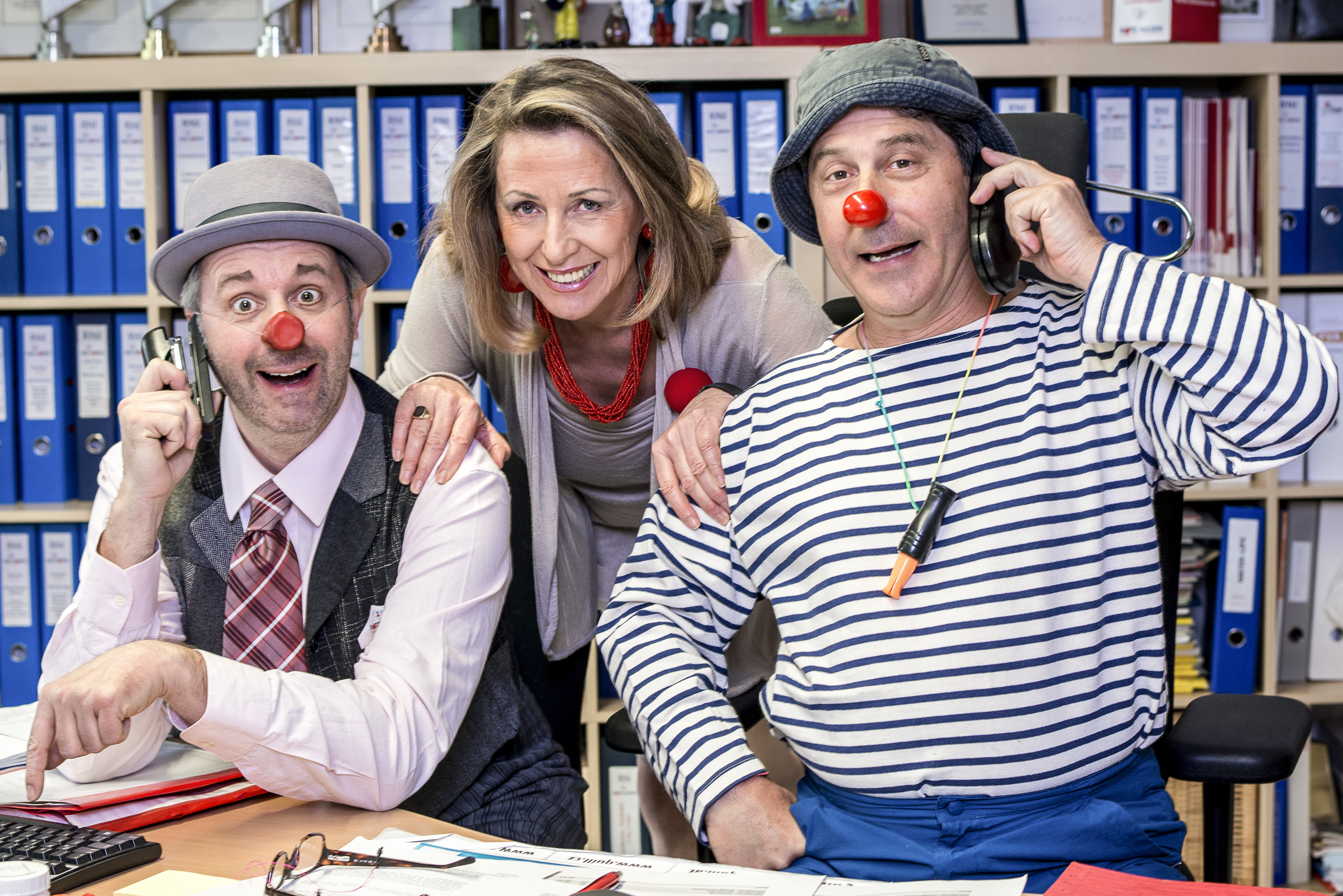
Like many of us, I am in self-isolation at home. The Corona Virus has turned our life upside down within only a few days. Almost nothing has remained the same, neither in private nor in professional life.
We see major limitations, insecurity, anxiety, loneliness, our physical as well as our financial health seriously endangered. It’s rather scary. I sympathize with all of you as we are all stuck in this unprecedented situation.
The virus also hit our organisation, RED NOSES Clowndoctors International massively. Our healthcare clowns, though they are now needed more than ever, are prevented from bringing cheer and laughter to the bedside of hospitalized children or old people in wards. All skills, professional experience and human relations with their patients have to change now to digital visits, but they still remain caring, funny and creative.
The clown philosophy reaches deep into the physiological sequences of the human body and is therefore applicable – with little adaptations – worldwide in each and every situation when pain, fear, stress and exhaustion seem to overwhelm individuals.
I was fortunate to learn a lot during my more than 25 years of involvement in hospital clowning and its unorthodox methods in dealing with all sorts of tensions and troubles, with life and death.
So let me share with you a few techniques from the clownish mind-set, which might help you just as much as they help me:
1. Healthcare clowns always look on the bright side of life.
In approaching a patient, the clown disregards the disease and concentrates entirely on the healthy aspects of his vis-à-vis. He – or she – diverts the attention away from pain and despair. In exchange, the clowns handle things differently by using the eternal methods of humoristic interventions such as a smile, laughter or relaxation.
All scientific studies tell us that laughter signals to the body: „The danger is banned, relax, and turn down stress symptoms!” Since body and mind are not two distinct entities, as has been assumed until only recently, but one interdependent system, humour has effects on both – the mental and physical side.
So open your senses to the beauty of creation, to small things like the smell of spring or the magic of a tender touch.
2. Clowns are masters of improvisation.
Our clowns do not arrive with a previously prepared programme or show. They respond precisely to the situation they face in the moment with the small patients, observing attentively the atmosphere, the environment, and the state of mind of the kids, who immediately become part of the intervention. By making fun out of the unexpected, using unrehearsed exaggerations, grotesque interpretation of medical instruments or machines, just to mention a few, clowns bring distraction, laughter, and relaxation..
So look around, try to see your own small world with the eye of the clown. Perhaps use things differently, out of the normal, arrange something in a new way, be playful!
3. Clowns are curious.
When encountering other people, the clown is always curious about them. In a non-judgmental, innocent way, like children who learn about the world. Healthcare clowns are curious about patients’ stories, about how they face the day or how they handle life. They live in the moment and see people with best intentions through their heart.
You don’t have to be a master of clowning to maintain or rediscover a piece of childhood curiosity. You will detect an unexpected number of things you never thought of having around, some skills you have in you, but neglected until now. It is endless, what a curious mind can detect and what joy it may bring.
4. Clowns are warm-hearted.
Clowns have a very innocent and open way to connect to people. They understand and accept human worries and fears, failures and weakness, and they will always try to make the best out of it.
As we are all stuck in this critical situation, let us not follow our fears, but rather let us keep the spirits up.
Photo: RED NOSES

